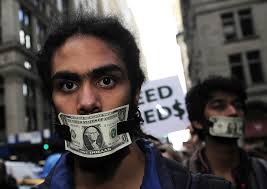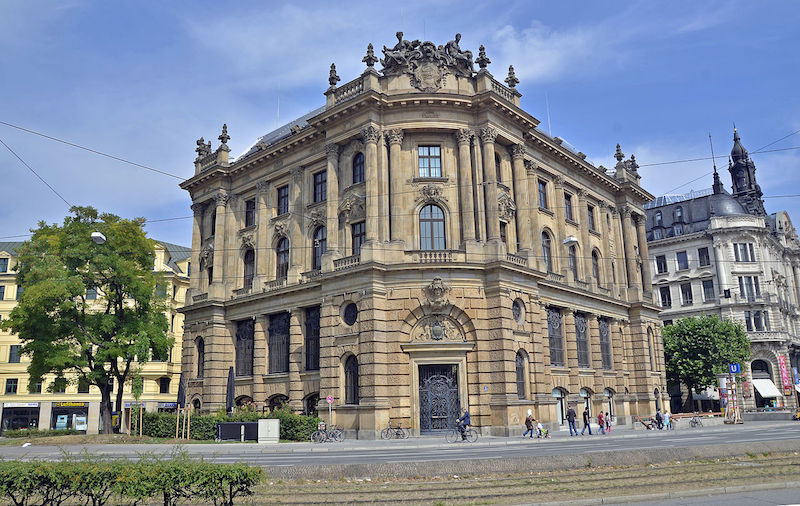Globalization has ushered in an age of neo-liberal hegemony founded on the belief that human evolution has culminated to the point where we are now in the best position to realize the full potential of humankind. However, as conflict, poverty and inequality persist one is forced to question when the promise of neo-liberalism will be realized? For most, the answer sadly seems to be, never. Neoliberalism presupposes that economic modernization means the same thing everywhere and interprets the globalization of economic activity as the unavoidable advance of a singular type of western capitalism.
The neoliberal project is built upon historical myth, which has never existed in reality as it does in principle. The neoliberal vision is not optimal nor is it inevitable. Thus, its worldwide imposition is questionable with respect to both morality and efficacy as these ideas make little economic, social or democratic sense. 
What is Neo-liberalism?
Neo-liberalism is, broadly, the institutional arrangement based upon the liberal idea of individual freedom and the neo-classical economics views promoting free market. The essence of this position is that: human affairs and individual freedom will be enhanced by a system based on the principles of a free unregulated market with no state interference. From this perspective, for economic growth to be achieved, there must be unimpeded and unregulated international movement of goods and services and capital within and across borders. This is essential to achieving the broader objective of economic development, which will benefit all.
The Fairytale of Neo-liberalism
The primary shortcoming of neo-liberal theory is that it is too narrow and fails to address the complex causal relations upon which economic development is based. Proponents of neoliberalism often oversimplify the issues, “basing their belief in the perfection of market economies on models that assumed perfect information, perfect competition, perfect risk markets. They were never based on solid empirical and theoretical foundations.”
The fantasy of neo-liberal theory is not grounded in historical context and has only a vague connection to reality. The notion of the free market in practice is itself a myth, as it has always been constrained by social forces. Even attempts to impose such ideas have resulted in massive social disruption, upheaval and resistance.
Those who attempt to vindicate neo-liberalism point to stories of successful economic growth, both in the larger experienced economies of industrialized states as well as the more recent experiences of successful growth in developing states. However, on closer examination, it is clear that in both cases, no country has ever achieved sustained development without the coercive hand of the state. Herein lies the fundamental contradiction of neo-liberal theory: not only does the imposition of neo-liberalism often utilize the state; it in fact depends upon it, making them inextricably linked. The power of the state has not necessarily declined, but has been diffused to the market where the reality is not the removal of the state from economic activity, but rather, using it to subordinate social relations to economic activity. Even in favorable conditions “the free market was too humanly costly to be sustainable thereby demonstrating that social stability and the free market cannot be compatible for long.”
 This is true not only of the British context, but “virtually all of our experience with economic development suggests that extensive regulation of foreign commerce by a country’s government has been an essential foundation for successful economic growth.” This is historically evident when looking at British and US textiles and the role of trade protection. Similarly, Japan, Germany and Russia also enjoyed decades of protectionism and state intervention on the road to development. All of these ‘advanced economies’ only gradually opened up to become “free” once strong domestic industries were established.
This is true not only of the British context, but “virtually all of our experience with economic development suggests that extensive regulation of foreign commerce by a country’s government has been an essential foundation for successful economic growth.” This is historically evident when looking at British and US textiles and the role of trade protection. Similarly, Japan, Germany and Russia also enjoyed decades of protectionism and state intervention on the road to development. All of these ‘advanced economies’ only gradually opened up to become “free” once strong domestic industries were established.
This is further demonstrated when looking at newly rising economies of the ‘global south’, particularly South Korea, Taiwan and China, which continue to grow not under neo-liberal policy, but through “inward looking policies.” Typically, countries that have achieved developmental advances at a later historical period were “characterized by a significantly greater role for the state in the regulation of foreign commerce, both with regard to trade and investment.” The experiences of East Asian success stories are generally not associated with unrestricted access by foreign firms to a country’s national economy, but rather a strong state promoting development in the face of international competitions.
In fact, most countries which try to reconstruct their economies based on the model of neo-liberal free markets, will not achieve a sustainable economic growth. Yet the Washington Consensus continues to push underdeveloped countries with infant industries to open up to the market before they are able compete or survive in the international arena. Such policies ignore the devastating effects this can have on newly emerging economies as well as the social implications.
Concluding Thoughts
Neoliberalism fails to appreciate that the ideal conditions to promote human prosperity do not rely solely on economic activity, but on a broader social foundation to address a wider range of interests that the neoliberal agenda willfully ignores. Neoliberalism does not enhance the human condition, but only serves to contradict democratic ideals, undermines growth and causes social upheaval. The promotion of the system worldwide must be recognized as a deliberate political project to legitimize the differential in wealth and power. 
Before we can constructively market an alternate system, the task is to first re-conceptualize how we see markets. As Naomi Klein asserts, “It is eminently possible to have a market-based economy that demands no such brutality or ideological purity.” One should use the market to bring about development rather than allow the market to use them, “the issue is not whether we take part in world commerce, but how we take part.” People should not be forced to absorb the costs of the failure of system, which is designed to subjugate them. Development and social justice are not mutually exclusive, and globalization need not eliminate the ability of governments to protect their citizens while promoting economic growth.
It is just as important to avoid the other extreme of too much regulation and state direction, which can potentially have equally destructive effects, a topic which will further be explored in another article.




